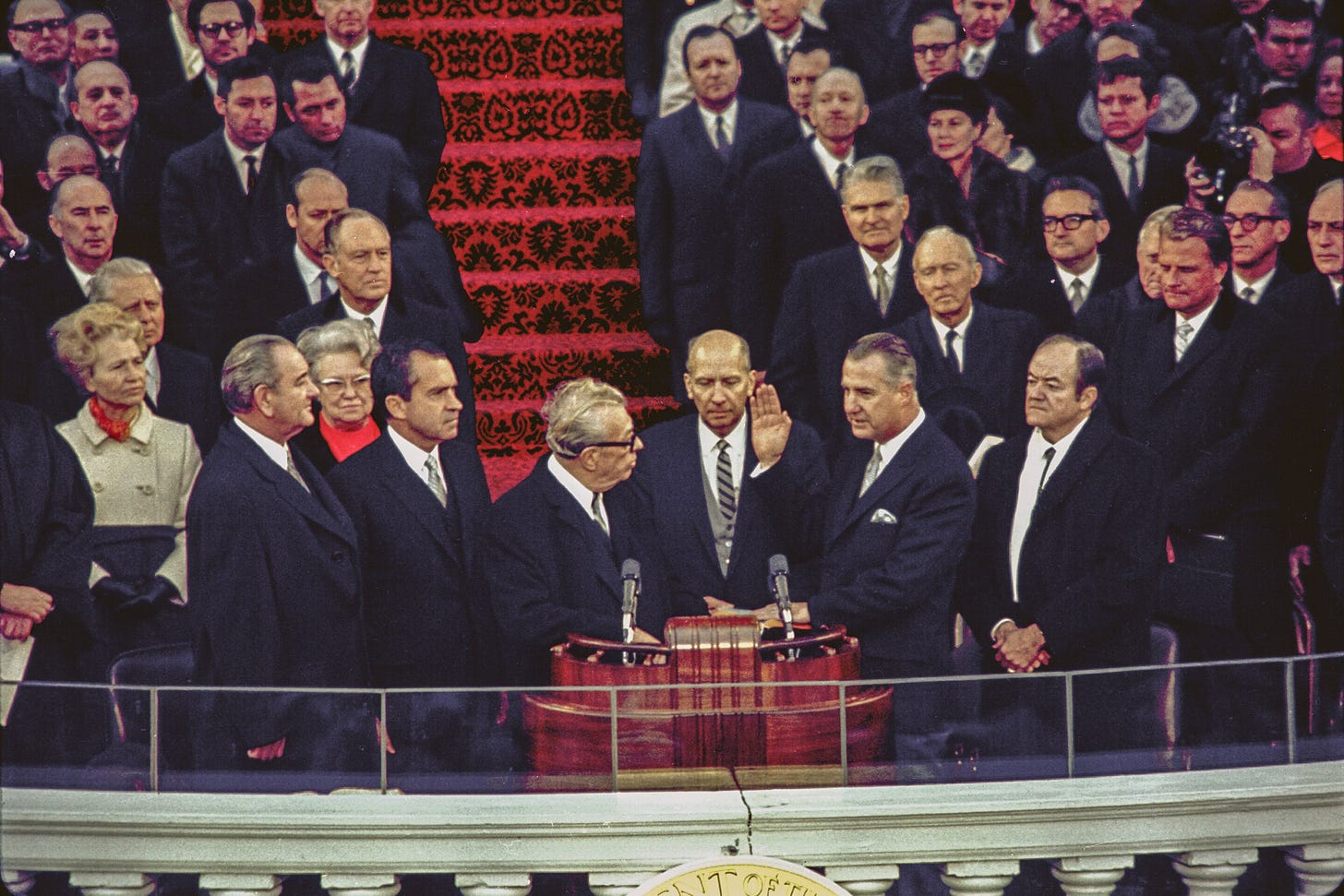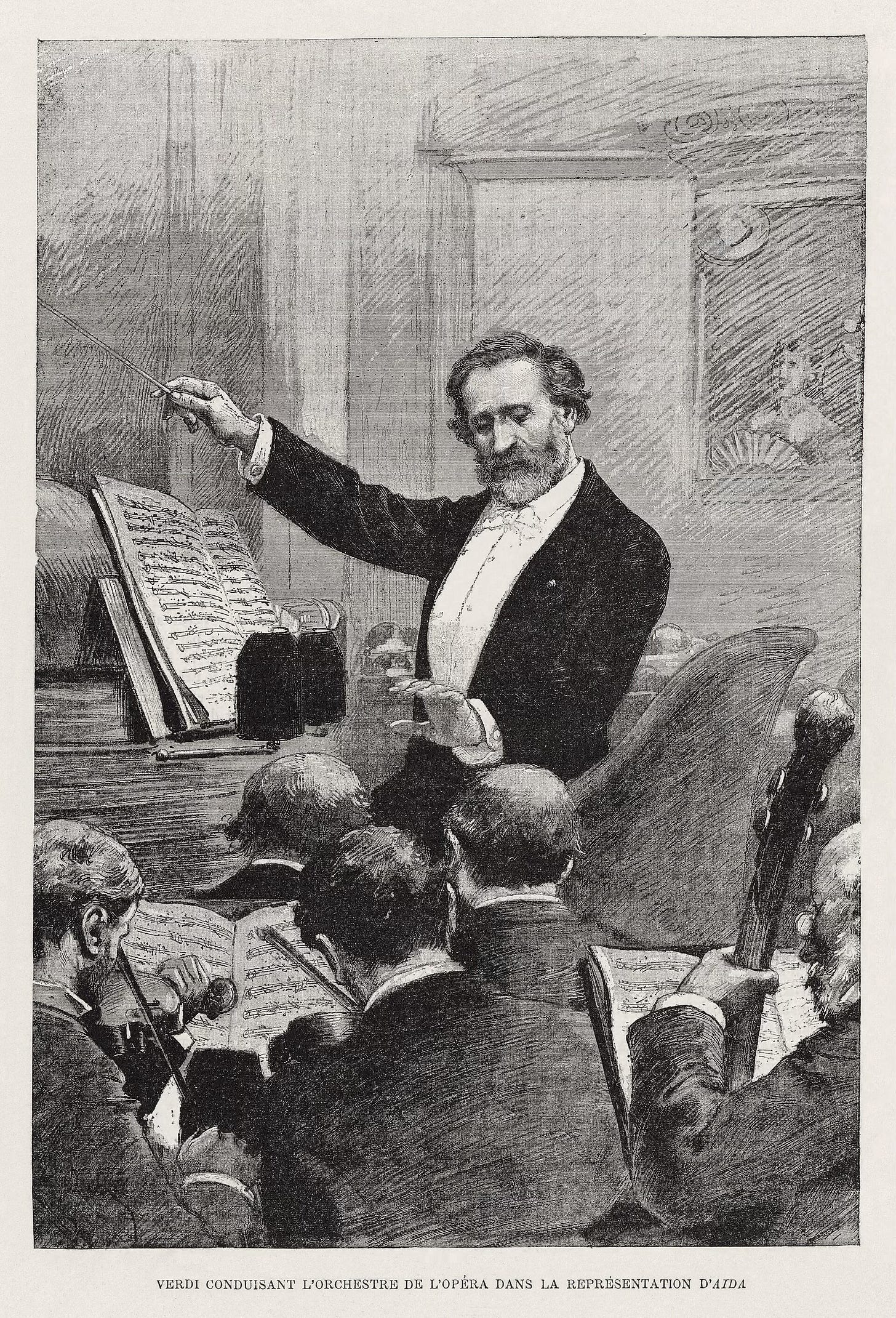This Day in Legal History: Spiro Agnew Resigns
On October 10, 1973, Vice President Spiro T. Agnew resigned from office after pleading nolo contendere (no contest) to a charge of federal income tax evasion. This marked the first time in U.S. history that a sitting vice president resigned due to criminal charges. Agnew, who had been under investigation for bribery, extortion, and tax fraud from his time as Baltimore County Executive and Governor of Maryland, struck a deal with federal prosecutors to avoid jail time.
Agnew’s resignation came amid the broader constitutional crisis surrounding the Nixon administration, which was already under intense scrutiny due to the unfolding Watergate scandal. While Agnew denied the bribery allegations, he admitted he failed to report $29,500 in income received in 1967. As part of the plea agreement, he was fined $10,000 and placed on three years’ probation, but avoided prison.
His departure triggered the use of the 25th Amendment, specifically Section 2, which allows the president to nominate a new vice president when a vacancy occurs. President Nixon nominated Gerald R. Ford, then House Minority Leader, who was confirmed by both chambers of Congress. Less than a year later, Nixon himself would resign, and Ford would ascend to the presidency—making him the only U.S. president never elected to the office of president or vice president.
New York Attorney General Letitia James was indicted on October 9, 2025, for allegedly providing false information on a mortgage application. A federal grand jury in Virginia charged her with bank fraud and making a false statement to a lending institution, accusing her of falsely claiming she would use a property in Norfolk, Virginia, as a secondary residence. The indictment alleges that by misrepresenting her intent, James secured a lower interest rate, saving around $19,000. She denies wrongdoing and called the charges a politically motivated attack by the Trump administration, which she has clashed with repeatedly.
The case follows a recent indictment of former FBI Director James Comey and ongoing investigations into other Trump critics, including Senator Adam Schiff and Federal Reserve Governor Lisa Cook. Critics, including James’ attorney Abbe Lowell and Senate Democratic Leader Chuck Schumer, claim Trump is using the Justice Department for political retaliation. The case was brought by U.S. Attorney Lindsey Halligan, a recent Trump appointee, reportedly without involvement from career prosecutors. James is expected to appear in court on October 24.
The legal battle comes amid ongoing litigation between James and Trump, most notably a civil fraud case that initially led to a $454 million penalty against Trump, later overturned on appeal. James’ team plans to fight the charges vigorously, suggesting her misstatements were not intentional.
Letitia James, NY attorney general and Trump foe, indicted for mortgage fraud | Reuters
A federal judge in Chicago has temporarily blocked President Donald Trump’s attempt to deploy National Guard troops to Illinois, citing concerns that the move could escalate tensions rather than ease them. U.S. District Judge April Perry questioned the federal government’s justification for sending troops to manage what it described as unrest around an ICE facility in Broadview, Illinois. The state had sued the Trump administration, arguing the deployment was unnecessary and politically motivated. Perry noted that federal officers’ own actions had sparked the protests and warned that additional troops would “add fuel to the fire.” Her injunction will remain in place until at least October 23.
This ruling follows a similar block in Portland, Oregon, though a federal appeals court in San Francisco now seems poised to overturn that decision, possibly clearing the way for future deployments. The Trump administration has defended the use of troops, claiming it’s necessary to protect federal property, while Democratic leaders in affected states accuse the president of misrepresenting peaceful protests as violent uprisings.
Governor JB Pritzker called the court’s ruling a win for the rule of law, arguing there’s no rebellion requiring a military response in Illinois. The White House, meanwhile, pledged to appeal the decision, with Trump reiterating plans to expand troop deployments to other cities, including Chicago and Memphis. Critics argue this strategy stretches the limits of presidential authority and raises legal concerns over the military’s role in domestic law enforcement.
US judge blocks Trump’s deployment of National Guard in Illinois | Reuters
The U.S. Senate confirmed Jennifer Mascott, a conservative legal scholar and Trump ally, to the 3rd U.S. Circuit Court of Appeals in a 50-47 vote, further shifting the court to the right. Her confirmation drew criticism from Democrats, particularly from Delaware senators, who objected to her lack of ties to the state traditionally associated with the vacant seat. Her only known Delaware connection is a beach house, prompting concerns about broken precedent and political loyalty.
Mascott, who has clerked for Justices Clarence Thomas and Brett Kavanaugh, was on leave from her faculty position at Catholic University while working in the White House Counsel’s Office. Senate Republicans praised her conservative legal background and past testimony before the Judiciary Committee. In contrast, Democrats criticized her nomination as partisan, with Senator Chuck Schumer labeling her a “sycophant” to Trump.
This appointment, along with the recent confirmation of Emil Bove—a former Trump DOJ official and personal attorney—gives Republican appointees a majority on the 3rd Circuit, which hears appeals from Delaware, New Jersey, and Pennsylvania.
Democrats also voiced frustration over the elimination of the “blue slip” tradition, which once allowed home-state senators to block appellate nominees. Republicans ended that practice during Trump’s first term, enabling confirmations like Mascott’s over local opposition. On the same day, the Senate Judiciary Committee advanced another Trump nominee, Rebecca Taibleson, despite objections from her home-state senator.
US Senate confirms Trump nominee Mascott to federal appeals court | Reuters
A Republican-controlled Senate committee approved two of President Donald Trump’s nominees to the National Labor Relations Board (NLRB) but delayed action on a third, leaving the agency without the quorum needed to issue decisions. The Senate Health, Education, Labor and Pensions (HELP) Committee voted 12-11 to advance James Murphy, a retired NLRB lawyer, to the board and Crystal Carey, a labor attorney, as general counsel. However, a planned vote on Scott Mayer, Boeing’s chief labor counsel, was pulled after he clashed with Senator Josh Hawley during his confirmation hearing.
The NLRB has been unable to function fully since Trump’s firing of Democratic board member Gwynne Wilcox in January and the expiration of another Republican member’s term. Wilcox is challenging her dismissal in court, and the Supreme Court has allowed her removal to stand pending resolution. Without at least three board members, the NLRB cannot issue rulings, stalling hundreds of cases — including many involving union elections.
Trump’s nominees would give Republicans control of the board for the first time since 2021. Democrats expressed concern over the independence of the nominees, noting the precedent of Wilcox’s dismissal and questioning whether the new appointees could remain neutral. Both Murphy and Mayer insisted they would apply the law impartially, regardless of political pressure.
Mayer faced particular scrutiny over a current strike involving Boeing workers in Missouri. Hawley criticized Boeing’s executive compensation amid labor disputes, while Mayer declined to comment on the situation, citing his pending nomination. The HELP Committee also approved other Trump nominees for roles within the Department of Labor.
US Senate panel approves two Trump NLRB nominees, tables a third | Reuters
This week’s closing theme is by Giuseppe Verdi.
This week’s closing theme features a composer whose name is nearly synonymous with Italian opera — Giuseppe Verdi, born on or around October 10, 1813, in the small village of Le Roncole, then part of the Napoleonic French Empire. Best known for grand operas like La Traviata, Aida, and Rigoletto, Verdi’s music defined the emotional and political voice of 19th-century Italy. Though his legacy rests almost entirely on the opera stage, Verdi briefly stepped into the world of chamber music with a single, striking contribution: his String Quartet in E minor, composed in 1873.
He wrote it during a production delay of Aida in Naples, saying modestly it was “just a trifle” — but the work is anything but. The first movement, Allegro vivace, opens with an energetic, tightly woven interplay among the instruments, showcasing Verdi’s grasp of counterpoint and formal structure, likely influenced by his admiration for German composers like Beethoven. There’s a dramatic drive that feels operatic, yet the themes unfold with the clarity and discipline of a seasoned instrumentalist.
It’s the only surviving chamber piece Verdi completed, and it stands as a fascinating outlier in his body of work — more intimate, abstract, and inward-looking than his vocal dramas. The movement balances lyrical passages with bursts of rhythmic vitality, hinting that even without voices, Verdi could make instruments sing. As we mark the week of his birth, this selection offers a rare glimpse into the quieter, more introspective corners of a composer usually associated with sweeping arias and rousing choruses.














